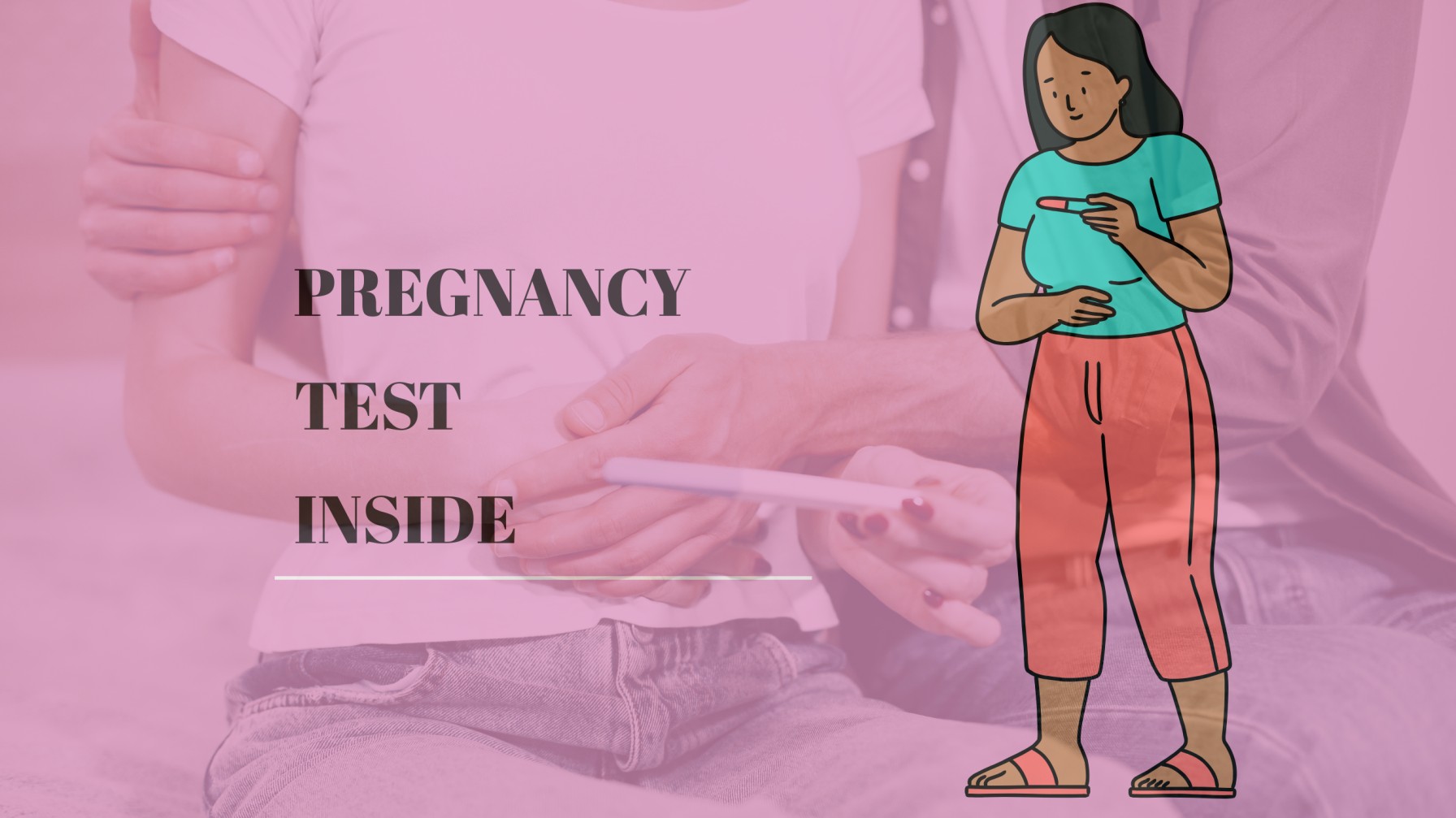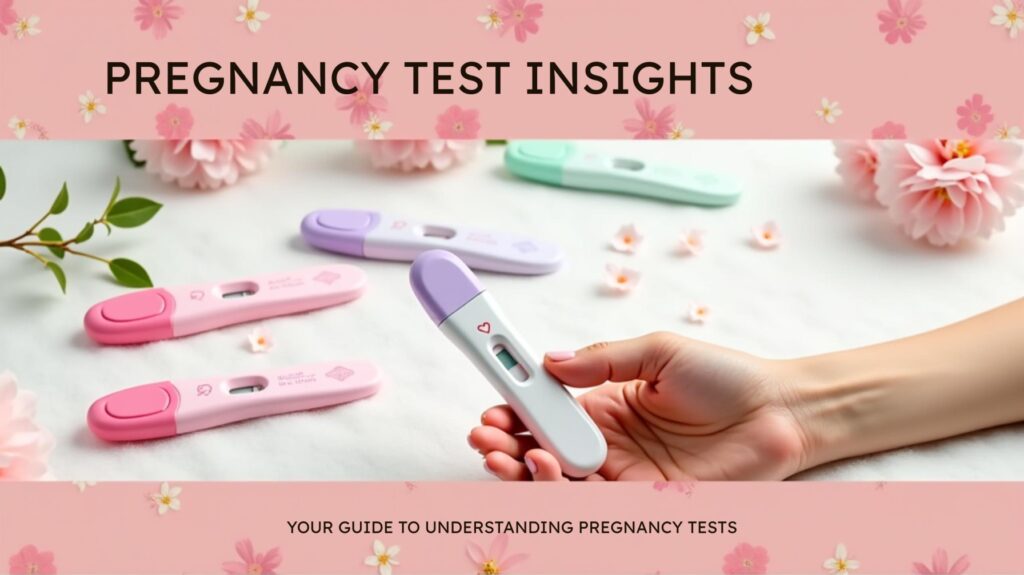
If you’re reading this, you might be wondering, “Am I pregnant?” Taking a pregnancy test is one of the most emotional moments in a woman’s life. Whether you’re hoping for a positive result or not, this page will guide you through everything — step by step.
Let’s sit down together, take a deep breath, and walk through what you need to know about pregnancy tests — from how they work to when and how to use them.
What Is a Pregnancy Test?
A pregnancy test checks for the presence of hCG (human chorionic gonadotropin) — a hormone produced during early pregnancy. It can be done at home or at a clinic.
There are two main types:
- Urine-based Pregnancy Test
- Easily available in pharmacies
- Simple and quick
- Used at home
- Blood-based Pregnancy Test
- Done at a clinic or lab
- More accurate
- Can detect pregnancy earlier
When to Take a Pregnancy Test
Timing is everything. The best time to take a pregnancy test is after your missed period. But some sensitive home kits can detect pregnancy as early as 10 days after conception.

Here’s what to keep in mind:
Morning urine is best because it has the highest concentration of hCG.
If your periods are regular, test 1–2 days after a missed period.
If your periods are irregular, wait 2–3 weeks after unprotected sex.
Early Signs You Should Take a Pregnancy Test
Before testing, your body might already be giving you some signs. Common early pregnancy symptoms include:
- Missed period
- Nausea or vomiting
- Tender breasts
- Fatigue
- Increased urination
- Mood swings
If you notice any of these symptoms, it’s a good idea to take a test.
How to Use a Home Pregnancy Test Kit
Using a home pregnancy test is easy, but you need to follow the steps carefully:
- Read the instructions on the package.
- Collect your urine in a clean container or place a test strip directly in your urine stream.
- Wait for the time mentioned (usually 3–5 minutes).
- Check the result window:
- One line = Not Pregnant
- Two lines = Pregnant
- No line = Invalid test
Tips:
- Always use the first urine of the day.
- Don’t drink too much water before testing.
- Expired tests may give false results.
How Accurate Are Pregnancy Tests?
Home pregnancy tests are over 99% accurate when used correctly and at the right time. However:
- Testing too early can lead to a false negative.
- A faint line might still mean you’re pregnant.
- Some medications and medical conditions may affect results.
If you get a positive result, it’s best to confirm with a blood test or ultrasound.
Home pregnancy tests are over 99% accurate when used correctly and at the right time. However:
- Testing too early can lead to a false negative.
- A faint line might still mean you’re pregnant.
- Some medications and medical conditions may affect results.
If you get a positive result, it’s best to confirm with a blood test or ultrasound.
Can I Get a False Positive or Negative Result?
Yes, it’s rare but possible.
False Negative (You are pregnant but test says you’re not)
- Testing too early
- Diluted urine
- Faulty test
False Positive (You are not pregnant but test says you are)
- Recent miscarriage
- Certain medications (like fertility drugs)
- Ovarian cysts
- Faulty test
When to See a Doctor
Whether your test is positive or negative, you might want to consult a doctor in these situations:
- Irregular periods or spotting
- Unusual pain or cramping
- Persistent pregnancy symptoms but negative test
- Confirming a pregnancy and starting prenatal care
Your doctor may recommend a beta hCG blood test or a transvaginal ultrasound.
What to Do After a Positive Pregnancy Test
Congratulations — or take a deep breath if you’re overwhelmed.
Here’s what to do next:
- Take another test to confirm
- Book an appointment with a gynecologist
- Start taking prenatal vitamins
- Avoid alcohol, smoking, and unprescribed medicines
- Begin reading about pregnancy stages, care, and delivery
This is the beginning of a life-changing journey. It’s okay to feel emotional. You’re not alone.
What to Do After a Negative Pregnancy Test
- If your period comes after testing, it’s likely accurate.
- If your period doesn’t start in a few days, test again.
- Track your cycle to better understand your ovulation and fertile days.
- If you’re actively trying to conceive, consider speaking with a fertility expert.
Repeat Testing: When and Why
Sometimes one test isn’t enough. You may want to take another test:
- A few days later if you still suspect pregnancy
- If your first test was faint or unclear
- If your cycle is irregular
Where to Buy a Pregnancy Test Kit
You can buy a pregnancy test kit at:
- Local pharmacies
- Online marketplaces (like Flipkart, Amazon)
- Health clinics or doctor’s offices
Choose a trusted brand. If you want privacy, online delivery is a great option.
Digital Tools to Track Your Pregnancy
If your test is positive, here are some next steps to stay organized:
- Use our Pregnancy Calculator to estimate due date and baby growth
- Download a pregnancy week-by-week guide
- Join our WhatsApp or Telegram group for daily tips and support
Pregnancy Test FAQs
Yes, but morning urine gives the most accurate result.
Some tests detect hCG as early as 10 days post-ovulation.
Yes, stress can delay ovulation and periods, causing similar symptoms.
At least 14 days after unprotected sex, or after your missed period.
You’re Not Alone
Taking a pregnancy test is a big step. Whether it’s your first time or not, the mix of emotions is real — fear, excitement, confusion, and hope. This page is here to guide you with love and honesty.
Whatever the result, take care of yourself. Talk to someone you trust. And if you need help, we’re always here.